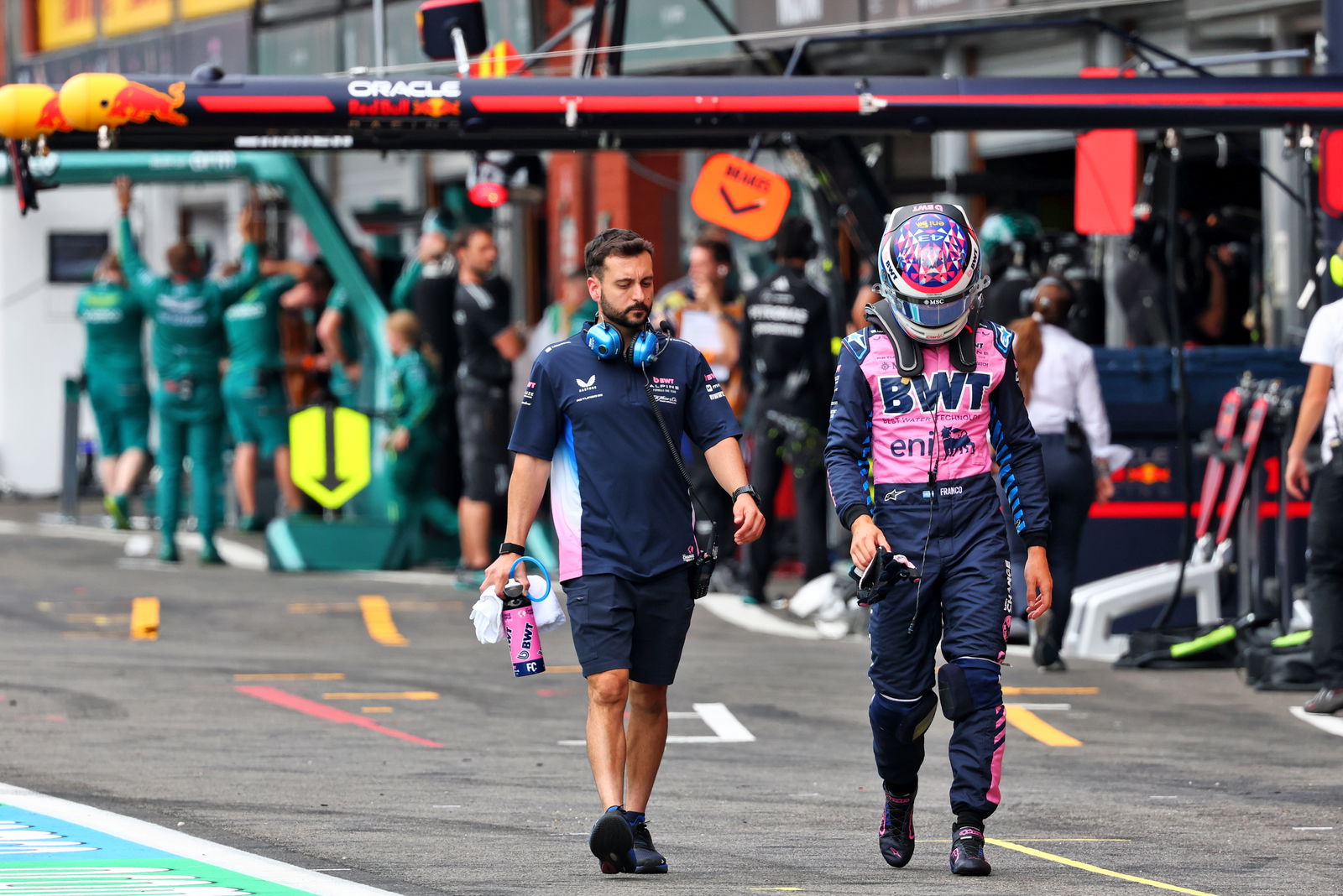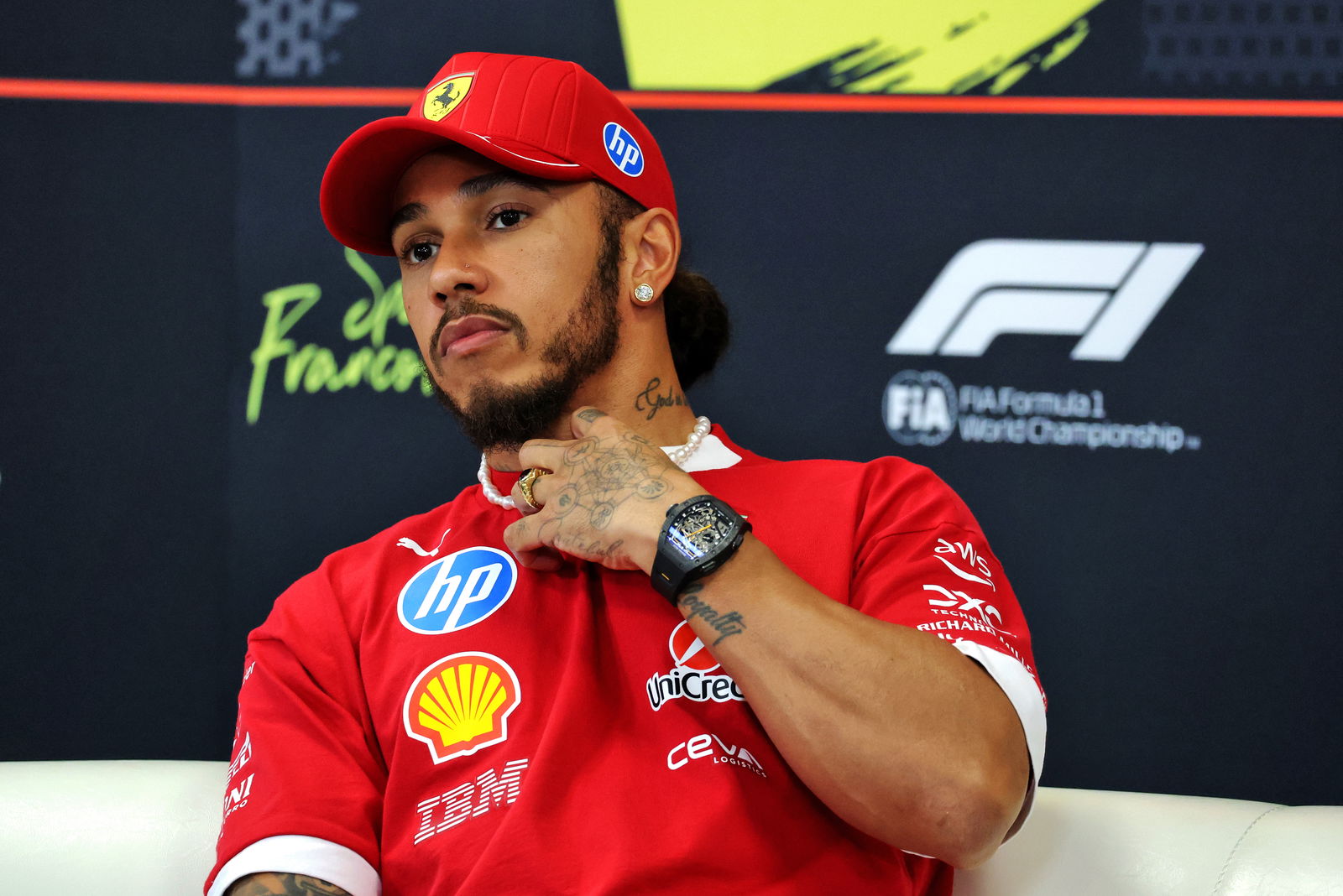Carlos Sainz on how Red Bull’s ruthless junior programme builds and breaks drivers
Carlos Sainz remembers his early years in F1 at Toro Rosso, how he was left mentally “exhausted” and why he thinks the Red Bull driver development programme still did great things for his career.

Carlos Sainz has offered insights into how Red Bull’s junior scheme can be mentally “exhausting” and intense for young racers, but also why he believes that very pressure plays a key role in shaping future Formula 1 stars.
Sainz, a graduate of Red Bull’s driver academy, made his F1 debut in 2015 with Toro Rosso alongside a 17-year-old Max Verstappen.
The Spaniard feels the environment at the team now known as Racing Bulls was one of constant internal competition, where failure to outperform your teammate could mean the end of your F1 career.
“It was the opposite [to Williams],” he said on the High Performance podcast. “It was the year to prove yourself and only think about yourself. Try and beat Max, Max trying to beat me and see who is better.
“If you win, you may go to Red Bull. If you manage to shine and not win, you stay in Toro Rosso and you stay in F1 and you make a career. If you get destroyed or you lose, you are out of Formula 1. It's two opposites.
“The atmosphere we were put into at Toro Rosso was to lock horns with Max immediately. I love Toro Rosso, I love that team but that team up until recent years has always been a playground for Helmut Marko and Christian Horner to put the two drivers there, see who is better to jump to Red Bull. So those two drivers are gonna.”
Carlos Sainz on pros and cons of being a Red Bull junior
Red Bull’s junior programme is infamous for being ruthless, with a number of drivers losing their seats before they had been given a chance to settle in and prove their worth.
But Sainz believes that, despite the psychological toll, the programme ultimately achieves its goal of preparing drivers for a top-line F1 seat.
“No criticism because that team works well,” he said. “It delivers great drivers to Formula 1. It did with Sebastian [Vettel], it did with Max.
“It still now has Isack [Hadjar] doing great and Liam [Lawson] recovering from his Red Bull episode. It still serves his purpose.
“But the reality is that you are always going to lock horns with your teammates there. Especially at a time two rookies at the same time, like we were, Max and me. We were always going to lock horns.”
Sainz recalled how he had to take unnecessary risks during a wet first practice for the Japanese GP during his rookie season, even though it counted for little.
Sainz ended up fastest in that session, but in hindsight, he finds it surprising just how hooked he was on beating his teammate in practice.
“It was probably the most intense years of my life,” he said. “Like I remember so many things of that year that were so intense.
“We also had the mental energy at 19. I was 19 at that time, Max was 16, 17. We had the mental energy to deal with that level of intensity, but I remember not the level of pressure, the level of detail we were looking at things.“
Every session, every FP1, we were going for it like crazy! For me, FP1 was qualifying already.
“I wanted to beat him in every FP1, every FP2, every FP3. I remember we were both really quick in the wet. We both had the thing [of being] really good in the wet in previous categories. So, it was like, who is quicker in the wet in Formula 1.
"And FP1 in Suzuka, full wets, go out on intermediates tyres, aquaplaning like crazy, just to try and show that in the first wet session of my life in Formula 1, without knowing the track, I was quicker than Max, and vice versa. So we were always trying to show each other.
“I remember I did FP1 in Suzuka for my first ever session in the wet in F1 because I took the risks that I shouldn’t have taken.
"I remember leading a session in a Toro Rosso in 2015 in the wet, and that being one of the highlights of my year. Now, I think about FP1s, I'm like, ‘build the laps’.
He added: “It was honestly exhausting. But it was nice exactly what builds you. That level of competitiveness, that level of pressure, it builds you. I wouldn’t change it. I would still do it all over again. I think it did me a lot of good things.”


